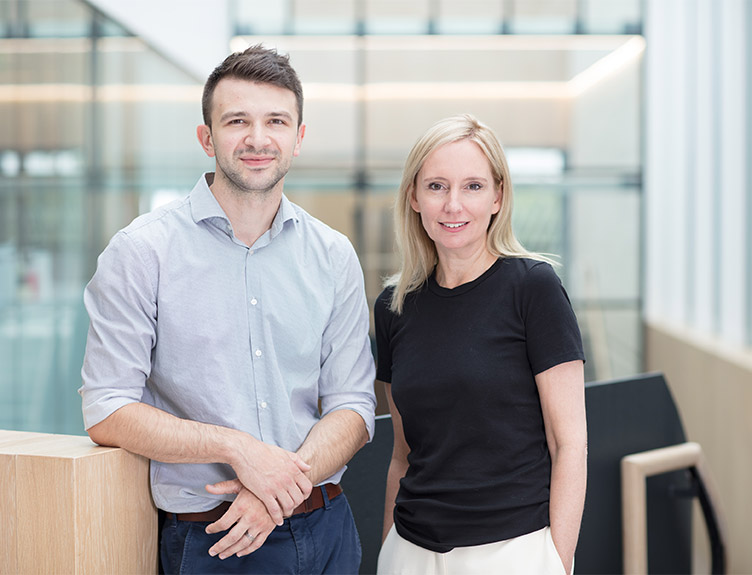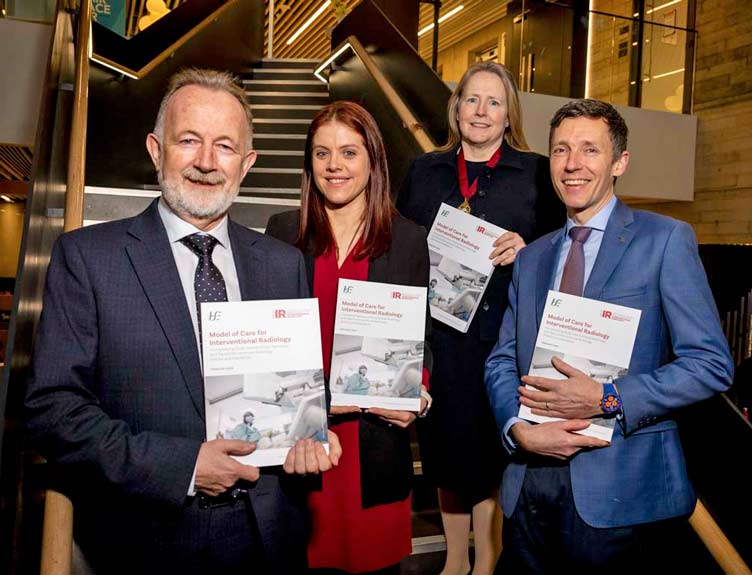Existing drug could treat secondary breast cancer that has spread to the brain

A new study led by RCSI University of Medicine and Health Sciences will explore if the drug talazoparib (Talzenna) could be used to treat people with incurable secondary (metastatic) breast cancer which has spread to the brain.
The study, funded by Breast Cancer Now, is led by Professor Leonie Young and Dr Damir Vareslija whose team will investigate if the drug could be used to treat secondary breast cancer in the brain.
Secondary breast cancer occurs when breast cancer cells spread from a primary tumour in the breast, through the lymphatic or blood system to other parts of the body where it becomes incurable. There are limited treatment options for people with breast cancer that has spread to the brain and a lot of drugs are unable to reach these tumours because of the brain's natural protection, meaning new treatment discoveries are urgently needed.
Talazoparib is an existing PARP inhibitor drug which works by preventing cancer cells with altered BRCA genes from repairing their DNA, forcing them to die.
Through previous research, which analysed tumour samples donated by people whose breast cancer has spread to the brain, the team established that almost half of the tumours had changes in the way they repair their DNA and this could make these tumours vulnerable to PARP inhibitors like talazoparib.
Using tumours and breast cancer cells donated by patients, researchers will now test in the lab if talazoparib is effective in treating secondary breast cancer in the brain. The researchers aim to identify key features of a tumour that responds to this type of treatment to establish who could benefit most.
Professor Leonie Young, Professor in the Department of Surgery at RCSI University of Medicine and Health Sciences, said: "Our previous research has shown that, in many cases, secondary breast cancer tumours in the brain have changes in the way they repair their DNA and we believe this could make them vulnerable to PARP inhibitor drugs like talazoparib.
"People are always at the heart of the research we do and we are always trying to answer questions that are important to our patients. The support of Breast Cancer Now will enable us to learn more about the effectiveness of these powerful drugs to hopefully treat people with secondary breast cancer which has spread to the brain in the future."
Professor Fergal O'Brien, Director of Research and Innovation at RCSI, congratulated Professor Young and Dr Vareslija on their project: "This study exemplifies the high quality translational cancer research at RCSI which is attracting prestigious international funding to help address the pressing clinical need for new treatment strategies for advanced cancer."
The study is funded by the Breast Cancer Now Catalyst Programme, which aims to accelerate progress in world-class breast cancer research through innovation and collaboration. As part of the Programme, Pfizer have provided Breast Cancer Now with an independent medical research grant and given the charity's researchers access to several Pfizer medicines.
Commenting on the secondary breast cancer study, Dr Simon Vincent, Director of Research, Support and Influencing at Breast Cancer Now, said: "We desperately need to discover new ways to treat this incurable disease, including for those whose breast cancer has spread to the brain and who have very limited treatment options. That's why we're delighted to announce that we're funding Professor Young's project through The Breast Cancer Now Catalyst Programme. We hope this study will be successful and lead to effective new treatments for those who badly need them."



